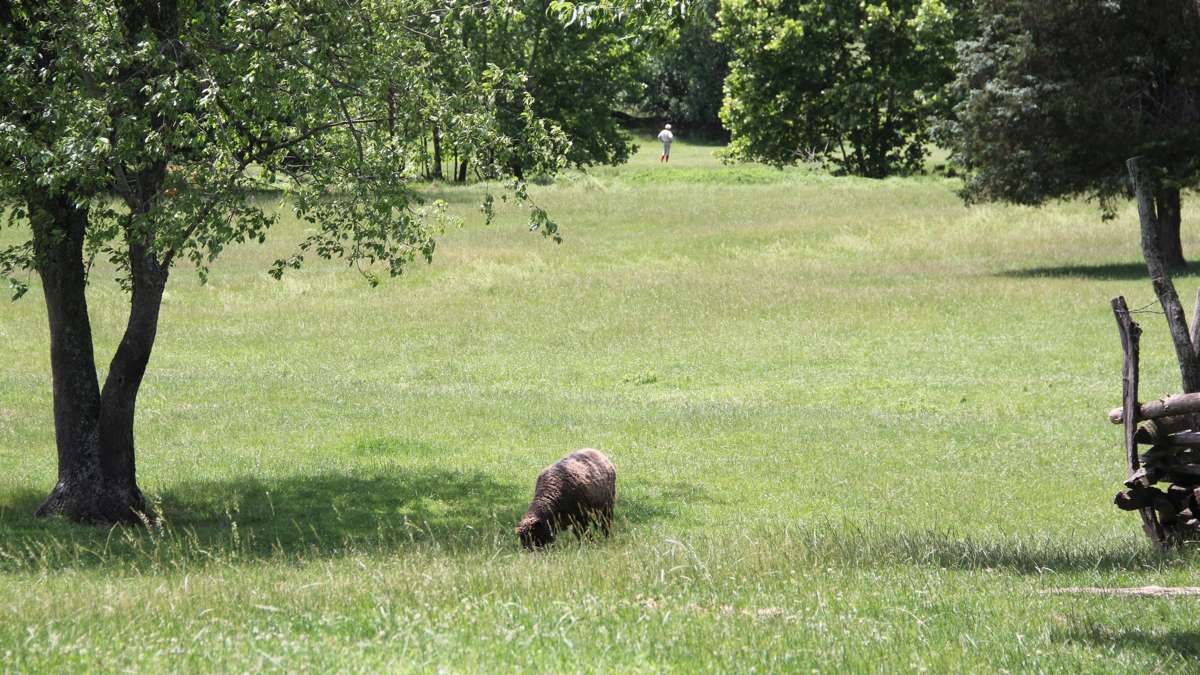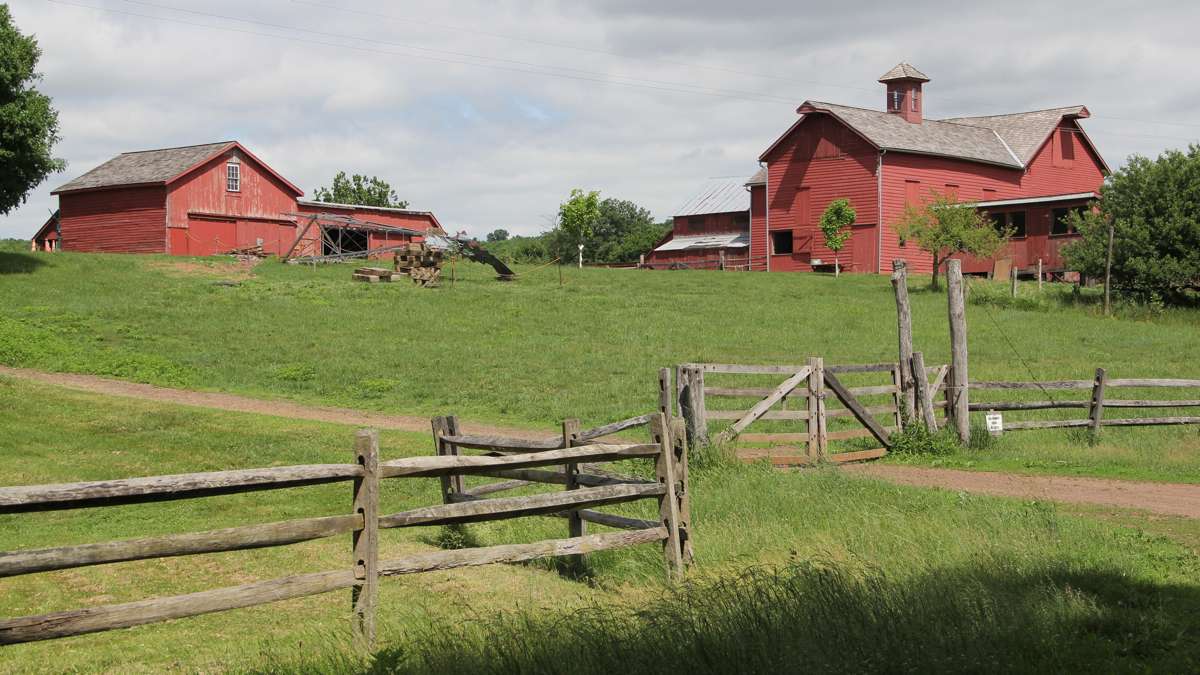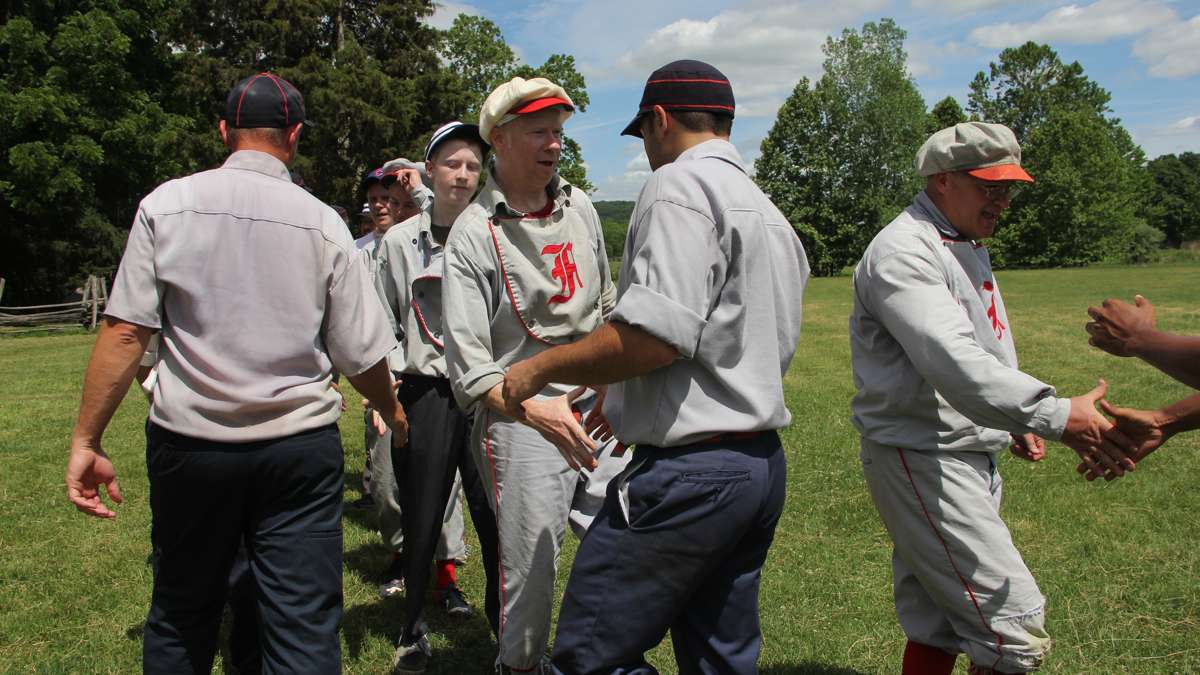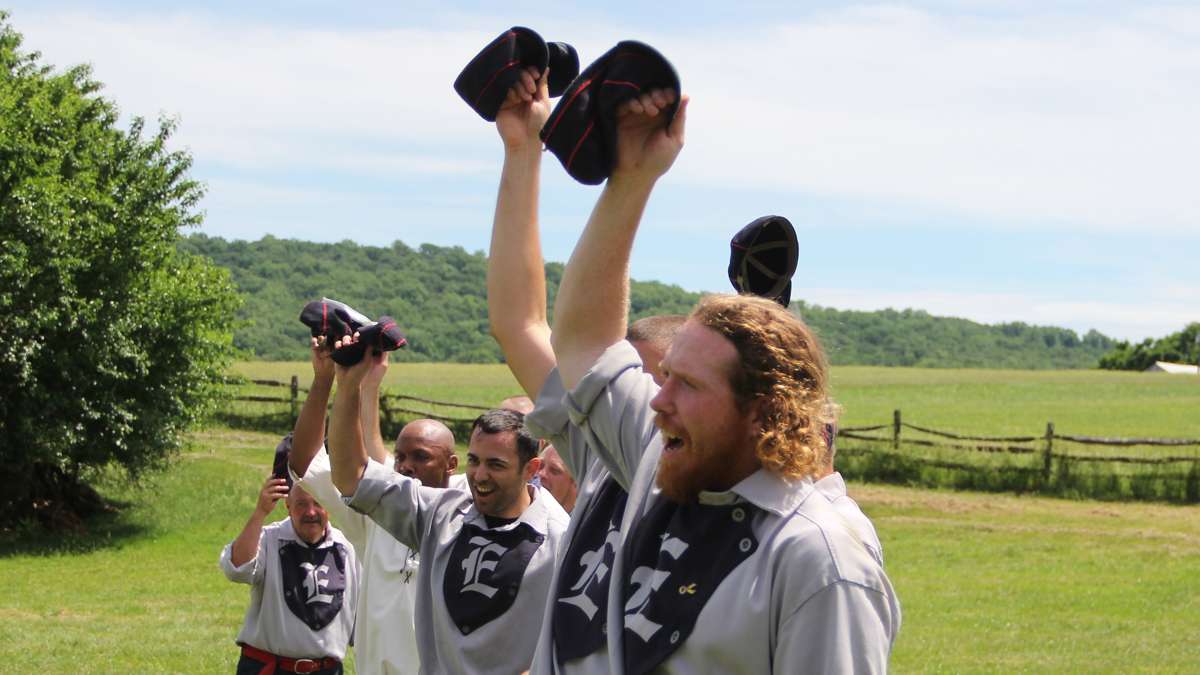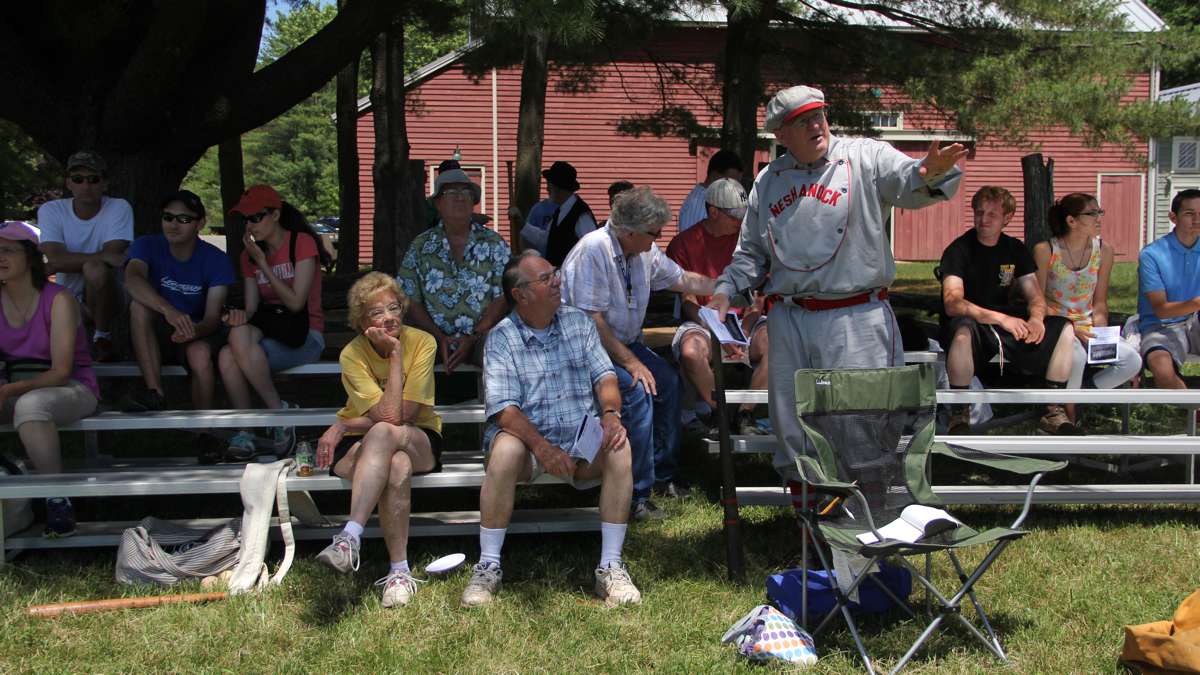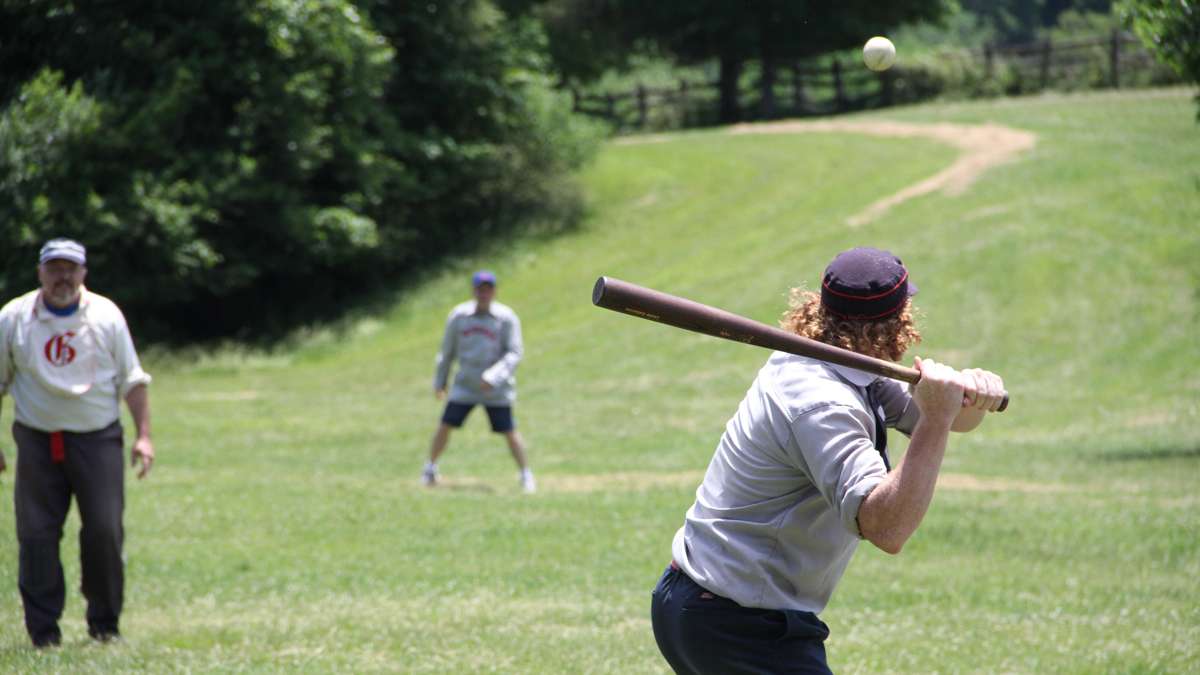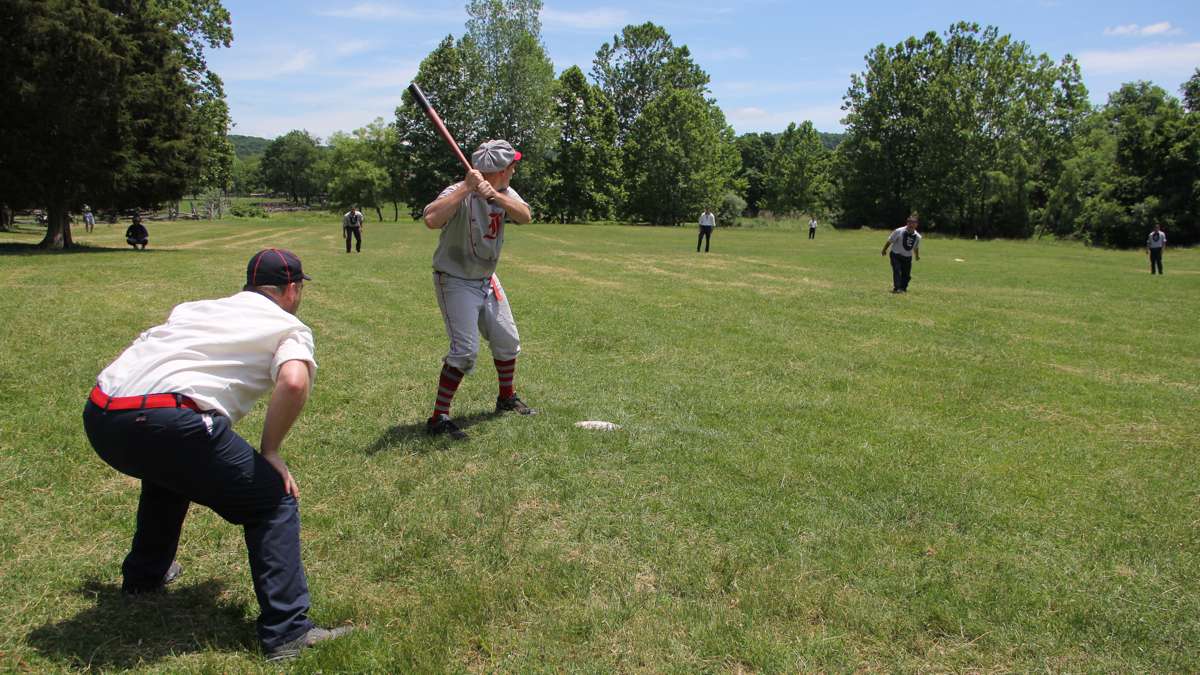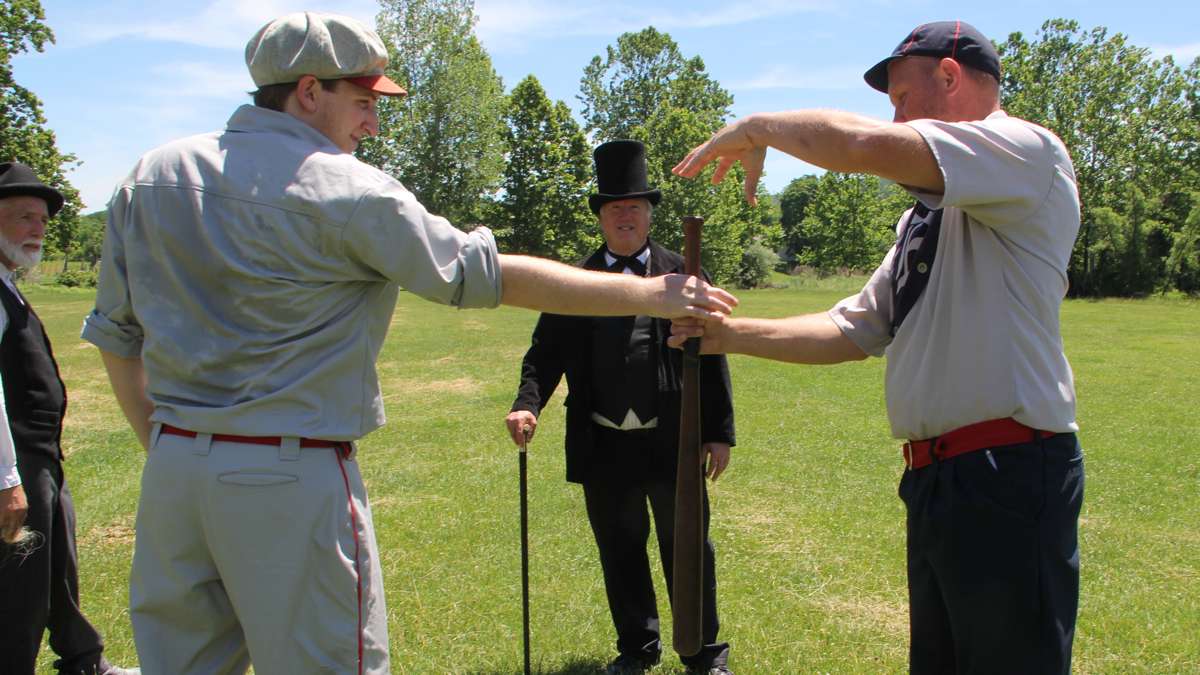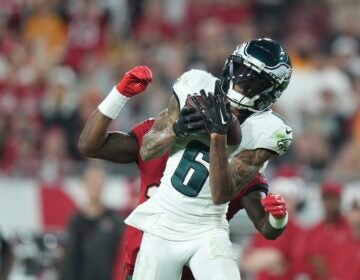New Jersey team helps re-create baseball’s beginnings as game of gentlemen [photos]
ListenBack when Abraham Lincoln was president and the Civil War raged, baseball was more of a “gentlemanly” game, a most civil sport.
Recreating that era on one sunny afternoon, the Neshanocks of Flemington, New Jersey, hosted a double-header against the Eclipse of Elkton, Maryland.
A capacity crowd of 50 filled the three rows of bleachers on either side of home plate on the field at the Howell Living History Farm in Lambertville, New Jersey.
They watched as 40 players in heavy cotton uniforms, replicas of baseball’s earliest days, warmed up by playing catch bare-handed.
Umpire Sam Bernstein, decked out in formal black suit and top hat, carried a silver-handled walking stick as he checked his pocket watch. He addressed the fans in the cadence and style of an era long past.
“Welcome, ladies and gentlemen, to our contest today. We are playing with 1864 rules. You will notice that the rules are very similar, but there are also some differences,” he said. “Ladies and gentlemen, I also want to let you know that we are still at war, and I send out our prayers to Abraham Lincoln, our president of the United States, and hopefully that he will bring our Union back together again.
“Thank you, and enjoy the game,” Bernstein continued.
“Play ball!”
Field of sheep
In the mid-19th century, baseball games stretched out in pastures and on whatever open land was available.
Brad “Brooklyn” Shaw, player/manager of the Neshanocks is leading a team through today’s home games at the Howell Living History Farm in Lambertville, New Jersey.
“This is as probably as close as the way that they played back in the 1860s as possible, because we’re playing on an actual sheep pasture,” said Brad “Brooklyn” Shaw, player/manager of the Neshanocks, indicating the farmland. “And I think he’s cleared the sheep already. We had a little concern there about running in the outfield with sheep.”
Baseball was considered a “gentleman’s game” back then. Players comported themselves much more conservatively. If players used foul language, umpires could fine them a nickel or even a dime.
Shaw said the largest difference is the one-bounce rule for flying out.
“You can catch the ball on one bounce for an out. But every time someone does try to catch the ball on a bounce if he can catch it on the fly, I’m going to yell ‘unmanly!'” Shaw said. “Because any boy of 5 can catch a ball on a bounce, so you should be trying to catch the ball on a fly.”
Another difference is a ball is in play even in case of a natural obstacle, in this case, a large fallen tree in short right field.
Players nicknamed it the “Green Monster.”
Any ball hit into the tree would be pretty much played as is, said Bernstein.
“If it hits the tree and is caught on a bound, we’re going to say it’s an out,” he said. “If it goes into the tree, and we lose sight of the ball, I’m probably going to give the base to the player, probably one base.”
One of the fans on hand for the recent game at the Howell farm was Ron Herion of Doylestown, Pennsylvania, who pitched in the Baltimore Orioles system during the ’50s.
“This is amazing!” Herion said. “I wish it was advertised more, so more people get out here and see what baseball really started as.”
An inclusive roster
The Neshanock roster includes executives, a retiree, a multimedia editor, a chiropractor, and a former newspaper reporter. The vintage league teams play exhibition games throughout the Mid-Atlantic, and walk-on players are welcome. Teams often have extra uniforms to lend spur-of-the-moment players to suit up.
Nearly a century before Jackie Robinson donned his Dodgers uniform, the era the players are re-creating featured racially integrated teams. Segregation came in the 1880s when baseball owners voted to prohibit signing African-American players.
Before then, highly regarded black players did not have to sign with the “Negro League” teams. And a few women concealed their gender for a chance to play in the 1860s.
Anyone who attends one of the vintage games will immediately recognize it as baseball, said Bruce Leith, the player/manager of the Elkton Eclipse.
“There’s a lot of quirks that make it really great, and it’s a great sport that shows people the beginning of baseball — what it was like before million-dollar contracts, automobiles, televisions, steroids and gloves,” said Leith, who has a day job as concessions development manager for the Phillies.
With no warm-ups or commercial breaks, the vintage games go much more quickly than those played out under stadium lights.
On this day, in the sheep pasture, a double-header took only three hours.
WHYY is your source for fact-based, in-depth journalism and information. As a nonprofit organization, we rely on financial support from readers like you. Please give today.


